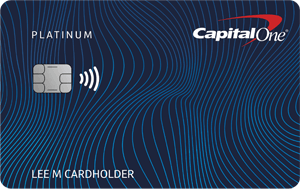Capital One Late Payment Fee : What Happens if You Miss a Credit Card Payment?
Missing a credit card payment can be frustrating—especially if you had planned to pay on time.
So what counts as a late credit card payment? How will paying late affect your account and finances? And what are Capital One’s late payment policies? Read on to find out the answers to these questions and more.
When Is a Credit Card Payment Considered Late?
According to the Consumer Financial Protection Bureau (CFPB), a credit card payment is late if it’s received after a specific time—5 p.m., for example—on the day it is due. But late payment policies vary. And it’s a good idea to check with your credit card issuer to learn more.
But what if you mail your payment and your due date falls on a holiday or a Sunday, when your credit card company can’t accept mailed payments? In that case, the CFPB says your mailed payment won’t be considered late as long as it’s received by 5 p.m. on the next business day at the location where the mailed payment is required to be sent.
NFL Sunday Ticket Student Login : NFL SUNDAY TICKET Students Promo Code
Mailing your payment well ahead of your due date could save you from accidentally making a late credit card payment. But if you pay your bill on time but pay less than the minimum amount due, you might still be charged a late fee.
Keep in mind that your card issuer may accept payments online or over the phone, which could also help you pay your bill by the due date.
When Is a Credit Card Payment Considered Late at Capital One?
Capital One considers a payment late if the minimum payment listed on your statement isn’t received by your monthly statement’s due date. Payments are also considered late if they’re less than the minimum payment or if they’re returned for insufficient funds after the due date.
What Happens if You Miss a Credit Card Payment?
Late credit card payments can affect your finances in several different ways. Here are three things that can happen if you miss a credit card payment:
1. Your Balance Could Increase—Even When You Don’t Use the Card
Missing a minimum payment can increase your balance in the following ways:
- Late fees. You might be charged a late fee for missing a credit card payment. According to the CFPB, your credit card company can charge a fee the first time you’re late. And if you’re late a second time within the next six billing cycles, the company can generally charge a higher late fee. For example, Capital One charges a late fee for the first late credit card payment. Then, the late fee increases if a second late payment is made within the following six billing cycles. When you have six billing cycles of perfect payment history after missing the first one, the late fee resets to the lower amount.
- Interest charges. You might continue to be charged interest on your unpaid balance until your card issuer receives your payment in full.
- Interest rate increases. Your interest rate could go up. If you’re at least 60 days late on your payment, for example, your card issuer might increase the interest on your balances. And if your interest rate increases, you’ll be charged more interest on your unpaid balance—which will increase your balance even more. But not all issuers use a penalty APR with late payments, and some exceptions apply. So it’s best to check with your credit card company.
2. Late Payments Might Affect Your Credit Score
Your credit report contains information about your credit, including your payment history and the status of your credit accounts. And your credit score is calculated using information from your credit report.
So you might be wondering: How long do late payments affect my credit score? Every situation is different, but negative factors like late credit card payments might show up on your credit report for years. And while the exact impact of late payments is hard to predict, payment history is a factor used to determine your credit score. Keep in mind that there are different credit scores. And each credit score may be calculated differently. So just how much late payments affect a credit score can vary.
It’s a good idea to check your credit report regularly. You can request free copies of your credit reports from each of the three major credit bureaus at AnnualCreditReport.com.
And with CreditWise from Capital One, you can access your free TransUnion® credit report and weekly VantageScore® 3.0 credit score anytime, without negatively impacting your score. CreditWise is free and available to everyone—not just Capital One customers.
3. Your Account Could Be Charged Off if You Fall Too Far Behind
If you don’t pay on time, you might not be able to use your card for new purchases until your account is current. When a credit card account goes 180 days—a full six months—past due, the credit card issuer must close and charge off the account. This means the account is permanently closed and written off as a loss to the company. But the debt is still owed.
If you’re having trouble making payments, contact your credit card company as soon as possible, because they might be able to work with you. And if you’re a Capital One customer having trouble making payments because of COVID-19, you should contact Capital One directly to discuss potential options.
Getting Back on Track
Ready to get your account back on track if you’ve missed payments? You can make payments online and even set up automatic monthly payments so you never miss a payment again.

Be the first to comment